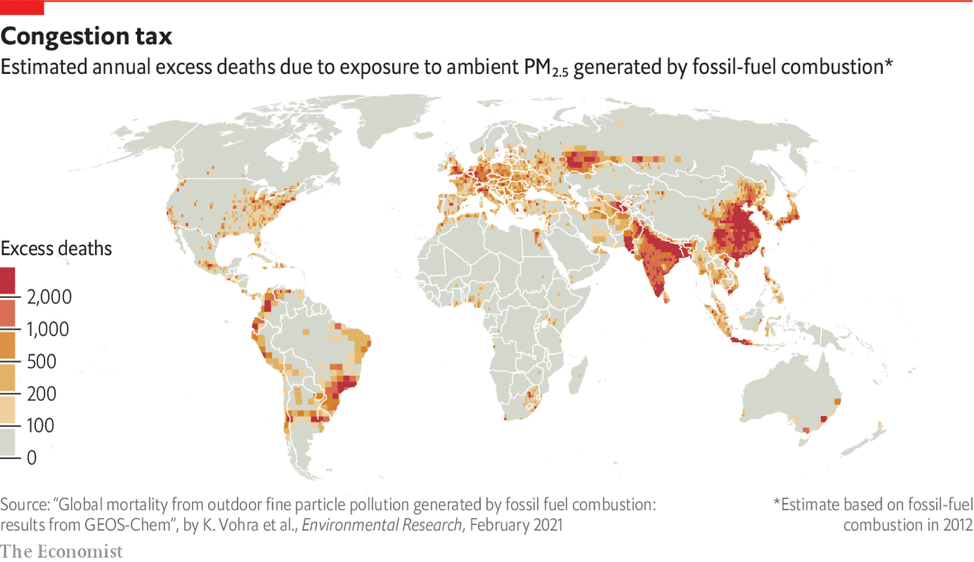
Published on March 11, 2021 / Leer en español
Dear Readers:
Congressional approval of President’s Biden massive $1.9 trillion American Rescue Plan is a significant legislative victory in the early days of his administration and will certainly provide much-needed help to low-income and middle-class individuals and families that have been hit hard by the pandemic. Ironically, though, this political and policy achievement also embodies the pressures the new administration is facing, and will likely continue to face, from both the left and the right.
On the left, there was significant discontent among the progressive ranks of the Democratic party after the Senate leadership cut out a minimum wage increase when the Senate parliamentarian determined it ran afoul of the complicated budget reconciliation rules under which the administration’s plan was being considered in the Senate. On the other side of the political spectrum, moderate Democrats in the Senate led by Joe Manchin successfully extracted concessions, such as keeping the federal supplement for unemployment insurance at $300 per week and lowering the income caps applicable to individuals and families receiving stimulus checks, in exchange for their support. Finally, no Republican voted in favor of the bill, which had the support of 77% of all voters, including 59% of Republican voters.
The fact that no Republican broke ranks to support a hugely popular bill bodes ill for Democrats who seek to make progress on some of the more heated items in their agenda, such as gun control, protecting voting rights, and immigration reform, which cannot be shielded from the threat of unlimited debate, known as a filibuster, in the Senate using budget reconciliation rules.
At some point, then, the Biden Administration may well have to consider weakening or eliminating the filibuster. A procedural tool that, in the words of Adam Jentleson, “has mainly served to empower a minority of predominantly white conservatives to override our democratic system when they found themselves outnumbered, blocking progress that threatened their power, their way of life, and the priorities of their wealthy benefactors, from the slaveholders of the nineteenth century to the billionaires of today.”
—Sergio M. Marxuach, Editor-in-Chief
Insights + Analysis from CNE

Modified COVID Relief Package Clears Senate Hurdles
By Sergio M. Marxuach, Policy Director
After an almost 27-hour session of amendments, debate, and last-minute negotiations within the Democratic camp, the Senate approved President Biden’s $1.9 trillion American Rescue Plan on March 6, by a 50 to 49 vote. All Democrats voted in favor, while all Republicans voted no, with the exception of Senator Dan Sullivan of Alaska who was attending a family funeral.
The bill approved by the Senate largely resembles the original administration proposal, but contains several significant changes. Among the most important modifications are the following:
- The proposed increase in the minimum wage was deleted,
- The Senate imposed stricter income limits to qualify for the $1,400 stimulus payments, and
- The federal unemployment insurance supplement will remain at $300 per week, as legislated last December.

A Short Note on Post-COVID Forecasting
By Raúl Santiago-Bartolomei, Ph.D. – Research Associate
There is no way to understate the profound impact that the COVID-19 pandemic has had on our individual and collective lives. It is no surprise, then, that governments, businesses, and households are anxious to overcome this situation. Consultants and researchers are rushing in to apply their analytical tools in order to forecast what the post-pandemic world is going to look like, given trends in the recent past and the present. Forecasting a few months into the future is important for short-term decision-making. But making highly consequential decisions for the medium- and long-term, given such high levels of uncertainty, may prove to be a fool’s errand. We are still in the middle of the pandemic, and trying to forecast years into the future, at this moment, is akin to forecasting post-disaster economic conditions while still being in the middle of the hurricane.
Data Snapshot
The Human Toll of Burning Fossil Fuels

The Economist reports that, “burning fossil fuels does more than pump carbon into the atmosphere. As with all sources of air pollution, it releases a mix of gases and tiny particulate matter. The smallest class of these — known as PM2.5 — can settle in people’s lungs and enter the bloodstream, where they can cause or exacerbate illnesses and, sometimes, lead to death. The death toll is enormous, according to a new paper by researchers at Harvard University in America, and University College London (UCL), and the University of Birmingham in Britain. Their study, published in Environmental Research, estimates that in 2018, 8.7m global deaths were associated with breathing air pollution from fossil fuels, almost one-fifth of all deaths worldwide. That total is far higher than previous estimates.”
On Our Radar...
![]() “Long COVID” – “The United States has announced that it will spend big on research into ‘long COVID’ — the long-lasting health effects of a SARS-CoV-2 infection. The funding comes as the scientific community is just starting to recognize the impact of the condition and unravel why it occurs. On 23 February, the US National Institutes of Health (NIH) announced an initiative worth US$1.15 billion over four years to fund investigations of the condition,” according to this report in the journal Nature.
“Long COVID” – “The United States has announced that it will spend big on research into ‘long COVID’ — the long-lasting health effects of a SARS-CoV-2 infection. The funding comes as the scientific community is just starting to recognize the impact of the condition and unravel why it occurs. On 23 February, the US National Institutes of Health (NIH) announced an initiative worth US$1.15 billion over four years to fund investigations of the condition,” according to this report in the journal Nature.
![]() Rolling Back Voting Rights – David Leonhardt of the New York Times reminds us that “Republican legislators in dozens of states are trying to make voting more difficult, mostly because they believe that lower voter turnout helps their party win elections. (They say it’s to stop voter fraud, but widespread fraud doesn’t exist.) The Supreme Court, with six Republican appointees among the nine justices, has generally allowed those restrictions to stand.”
Rolling Back Voting Rights – David Leonhardt of the New York Times reminds us that “Republican legislators in dozens of states are trying to make voting more difficult, mostly because they believe that lower voter turnout helps their party win elections. (They say it’s to stop voter fraud, but widespread fraud doesn’t exist.) The Supreme Court, with six Republican appointees among the nine justices, has generally allowed those restrictions to stand.”
![]() The World at-Large – The COVID-19 pandemic has forced all nations to look inward to take care of the health, economic, and social harm inflicted by a microscopic organism. The world at large, however, remains a complicated, dangerous place. A rising and assertive China, a revisionist and increasingly disruptive Russia, creeping authoritarianism, retreating democracy, and growing nationalist and xenophobic political movements have combined to exert significant stress on the institutions of the post-war, rules-based, liberal international order. This is not the time to disengage from the world. As the Biden administration states in its recently-released Interim National Security Strategic Guidance document, “events show all too clearly that many of the biggest threats we face respect no borders or walls, and must be met with collective action. Pandemics and other biological risks, the escalating climate crisis, cyber and digital threats, international economic disruptions, protracted humanitarian crises, violent extremism and terrorism, and the proliferation of nuclear weapons and other weapons of mass destruction all pose profound and, in some cases, existential dangers. None can be effectively addressed by one nation acting alone.”
The World at-Large – The COVID-19 pandemic has forced all nations to look inward to take care of the health, economic, and social harm inflicted by a microscopic organism. The world at large, however, remains a complicated, dangerous place. A rising and assertive China, a revisionist and increasingly disruptive Russia, creeping authoritarianism, retreating democracy, and growing nationalist and xenophobic political movements have combined to exert significant stress on the institutions of the post-war, rules-based, liberal international order. This is not the time to disengage from the world. As the Biden administration states in its recently-released Interim National Security Strategic Guidance document, “events show all too clearly that many of the biggest threats we face respect no borders or walls, and must be met with collective action. Pandemics and other biological risks, the escalating climate crisis, cyber and digital threats, international economic disruptions, protracted humanitarian crises, violent extremism and terrorism, and the proliferation of nuclear weapons and other weapons of mass destruction all pose profound and, in some cases, existential dangers. None can be effectively addressed by one nation acting alone.”
